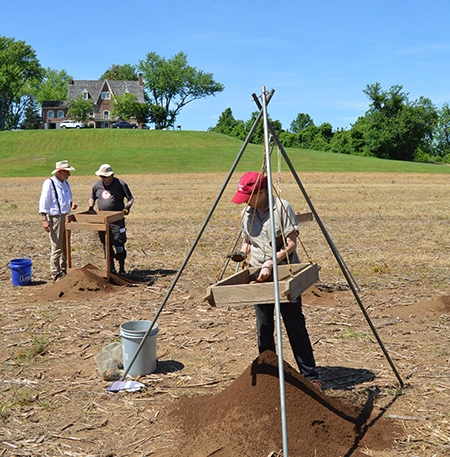 Volunteers work at the Billingsley site.
Volunteers work at the Billingsley site.
The Maryland Historical Trust (MHT) works with partner agencies, organizations, and volunteers to
identify, study, evaluate, preserve, protect, and interpret the state's archaeological
heritage. As part of this work, MHT surveys and documents archaeological sites, issues
permits for archaeology, reviews state and federal projects, and offers programs to help
connect the public to Maryland archaeology. MHT maintains archaeological data in
Medusa, the
state's cultural resource information system, and makes that data available to qualified
researchers. MHT also provides technical assistance and grant opportunities to those
interested in archaeological research in Maryland.
At MHT's headquarters in Crownsville, archaeology is organized into two major program areas:
terrestrial archaeology, which carries out land-based survey and lab research, and maritime
archaeology, which focuses on submerged (underwater) cultural resources in Maryland state
waters. MHT's archaeology priorities are informed by public input and outlined in each
update of the statewide preservation plan.
In Calvert County, Jefferson Patterson Park and Museum houses the
Maryland Archaeological
Conservation Laboratory (MAC Lab), as well as a library with archaeological research
material. JPPM also hosts several web pages that showcase Maryland archaeology and
databases to assist researchers in artifact identification. JPPM's and MHT's archaeology programs
sponsor numerous educational activities throughout the year. To learn more about MHT programs, click
on the boxes below.